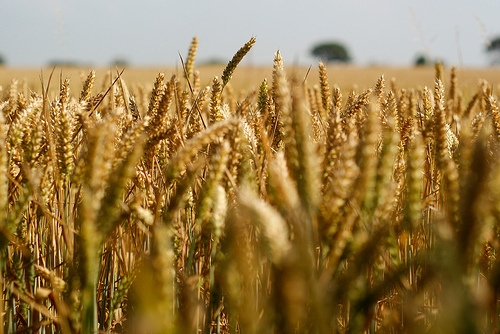
By Jason Hines –
[dc]A[/dc]nyone who knows me knows that the subject nearest and dearest to my heart is religious liberty. The Bible is full of allusions to religious liberty, which can be found in places where we would not expect, and most often in passages of scripture with which we are familiar. In devotion last week, I stumbled onto a familiar parable that has a hidden connection to the ideas of religious liberty.
The parable of the wheat and the tares, found in Matthew 13: 24-30, is a well known passage of scripture. In this parable, a man sows seed in his field, and his enemy comes during the night and sows tares (weeds) amongst the wheat. When his workers ask if they should pull the weeds out, the man says no, because they may harm the wheat in the process, and that they will wait until harvest time to separate the wheat from the tares and throw the tares into the fire. Later in the chapter, Jesus goes on to explain what the parable means. The Jesus is the man who sows, the devil is the enemy, the wheat are good people, the tares bad people, and the field, Jesus says, is the world. The point being that the good and the bad will grow together in the world, and only at the end of time will Jesus come and separate the good from the bad.
The lesson for us as Christians should be simple: That we should not be eager to rip up the “tares” and destroy them (or at best separate from them) before the appointed time. So what do we say to those who Christians who are attempting to use the apparatus of government and the coercive power of law to do just that? Those who are seeking to create a Christian nation in law and would criminalize freedom of conscience for gays, women, and anyone who disagree with their definition of Christianity? I think those people are attempting to separate the tares from the wheat in the same way that the man told his workers not to do. Sometimes that separation is figurative, in the sense that these Christians would in effect be subjugating non-Christians culturally. In other ways that separation is very literal, in the sense that some people would be jailed for not following certain laws that these people would pass, or in the very real sentiment that people who don’t agree with the Christian ethos should find another place to live.
There are at least two negative consequences of the violation of the lesson of the parable in modern times. First, the problem that Jesus mentions is very real. We are harming Christians and Christianity when we attack non-Christians in this way. How many times have you heard someone say they don’t want to be associated with Christianity because of the way we treat people? How many people have left our churches because of the way we treat sinners in our midst? We are harming the wheat because we are so eager to jump ahead of God and rip out the tares. But the second part is that we are harming the tares too! If we separate from non-Christians, or treat them as outsiders, or tear them up and mistreat them, how are we ever going to witness to them about the love of God, and His forgiveness? Jesus established the church to spread the gospel and help make disciples. We exist as a body of believers to help tares become wheat. We can’t do that if we’re busy trying to round them up so they can burn.